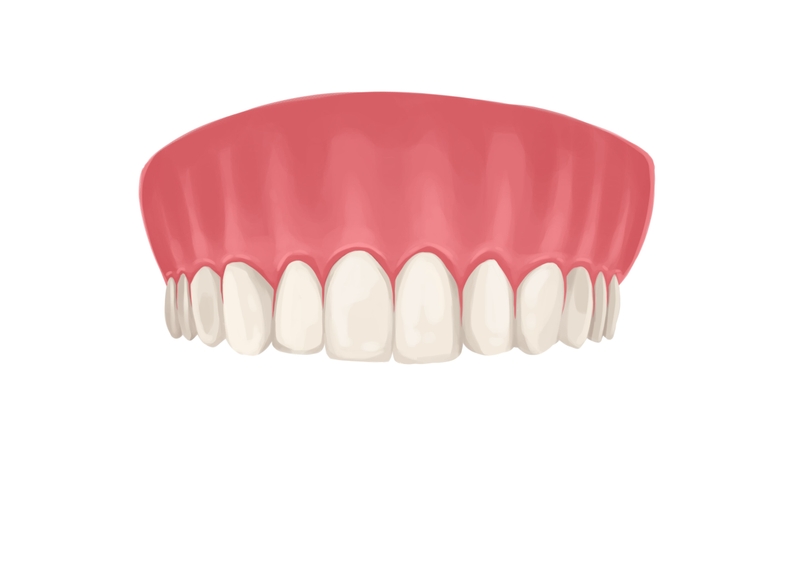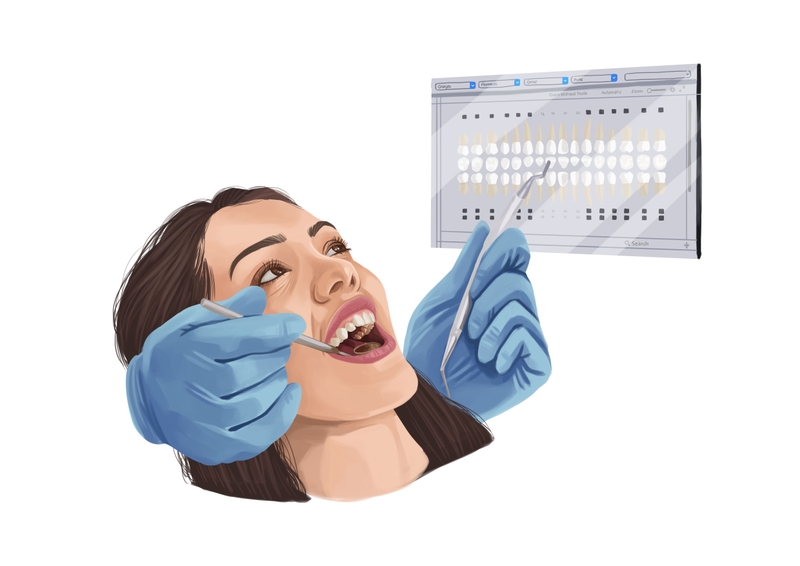- Coconut oil pulling is a traditional oral hygiene practice where coconut oil is swished in the mouth to help reduce bacteria and support gum health. While it may lower plaque-causing microbes due to its lauric acid content, it does not whiten teeth or replace brushing, flossing, or professional dental care.
- Coconut oil contains lauric acid, a natural antimicrobial agent.
- Coconut oil pulling also helps prevent tooth decay and fight periodontitis and gingivitis. It cannot directly whiten teeth.
Say hello to your new confident smile. Use Authority Dental to find dentists open now in your city. It’s simple, fast and free.
Coconut oil pulling may reduce oral bacteria, but it won’t whiten teeth or replace brushing. Learn the real benefits, risks, and what's recommended.
What is oil pulling?
Oil pulling means using lipids such as sesame or coconut oil to cleanse the oral cavity. This aims to reduce the amount of bacteria in the mouth. Most organisms that live there are single-celled. Fats adhere to them, making bacteria easier to flush out.
Coconut oil is considered the best choice, as it contains lauric acid. This is a natural antimicrobial agent that delivers the fastest results. It can also slow the progression of tooth decay.
How does coconut oil improve your mouth’s condition?

Picture by Authority Dental under CC 2.0 license
Coconut oil’s benefits, confirmed by scientists, can cumulatively lead to better oral health. Have a look at what oil pulling can do for your mouth.
Reduces the amount of bacteria
A 2008 study found that oil pulling helps remove bacteria from saliva. Those results were confirmed in 2016, when a similar study compared the effects of coconut oil with those of chlorhexidine mouthwash. Both concluded that this home remedy is a safe and effective alternative.
By reducing the amount of harmful bacteria in the mouth, oil pulling may help prevent many oral diseases. Most prominently, tooth decay and periodontitis.
Fights bad breath
Halitosis is usually caused by insufficient oral hygiene. Bacteria and their by-products accumulate on the soft tissues of the mouth, forming plaque on the teeth. This may also lead to infections or even foul-smelling pus forming on the gums.
As it removes bacteria, coconut oil can improve the smell of your breath. The effectiveness may be compared to professional dental products.
Prevents cavities
Cavities form on teeth when bacteria break down and produce demineralizing acids. Those damage tooth enamel, which is dentition’s first defense. Any treatment that helps counteract this process can protect teeth from caries, which can also stain teeth.
A 2016 study confirms that oil pulling may be a valuable addition to oral care, alongside brushing and flossing.
Minimizes inflammation in the gums
The bacteria in plaque may cause gingivitis. This is a gum disease. Symptoms include tender, red, or swollen gums that sometimes bleed. Coconut oil has antibacterial and plaque-reducing properties and may help reduce inflammation and prevent discoloration caused by these issues.
While it is not a cure, a 2015 study found that it can significantly reduce discomfort and plaque levels in the mouth.
Coconut oil teeth whitening effects
Online reviews praise coconut oil pulling for its teeth-whitening effects. This is not surprising, as coconut oil’s many properties help improve the appearance of your mouth. It may not whiten your teeth per se, but it instead leads to a healthier smile, which is brighter by default.
The fact that coconut oil reduces bacteria and prevents cavities means your teeth will not suffer staining that comes with such issues. Caries, in particular, can cause yellow, brown, or gray spots on the dentition.
Bacteria, periodontitis, and gingivitis may make teeth yellow. All these may also lead to gum recession, making discoloration even worse. Coconut oil, while helping fight those conditions, keeps your teeth pearly white.
Lee warns: "The biggest myth is the whitening claim. Coconut oil will not necessarily chemically bleach enamel."
"However, by lowering plaque levels—a benefit confirmed in clinical data—it prevents the yellow film and inflammation that make teeth look dull. Think of it as cleaning the "windows" of your teeth rather than changing the glass color. It simply allows your natural brightness to show through by keeping the surface clean," he explains.
How to use coconut oil for teeth?

Picture by Authority Dental under CC 2.0 license
Following the guide below will help you source many benefits from the ancient practice.
Consult with a dentist
Any dental solution, whether a home remedy or an OTC product, should start with a professional consultation. Your dentist is the best person to advise on how coconut oil pulling can benefit your mouth.
It may be that he or she first recommends in-office treatment, such as a teeth cleaning or SRP. This depends on the issues you are facing. Coconut oil pulling may then act as support to professional procedures.
Introduce coconut oil pulling gradually
Start by putting a tablespoon of oil into your mouth. Sip a little water if it is more solid than liquid. Sit upright and breathe through your nose. At first, try swishing it around in your mouth for about 5 minutes. You can extend the duration up to 15-20 as you continue this practice. This makes it easier to build up the habit.
Here are a couple of tips that can make it more comfortable and convenient:
Do not put too much oil into your mouth at first. It will be harder to keep it in your mouth, especially if you are beginning.
Do not swallow. It may make you nauseous.
Keep your facial muscles relaxed.
Try to spit into a trash can when you are done, especially if you perform the treatment every day. Oil can clog up pipes pretty quickly.
Many patients quote the best results when taking oil on an empty stomach. There is, however, no evidence that this makes a difference. Incorporate the solution into your routine in a way that will make the most sense for you.

Keep up proper oral hygiene
This technique should not replace your oral routine. When you are done, rinse your mouth and brush your teeth. You can invest in a separate brush to use right after pulling. Fatty cells may be left behind, which can make the toothbrush unpleasant in the long run.
You should also visit your dentist for a checkup at least once a year. A professional cleaning is recommended every 6 months. Those can help prevent oral diseases, discoloration, and staining.
Along with regular brushing, flossing, and routine dental care, some individuals explore daily oral health supplements designed to support a balanced oral microbiome. Oral probiotics are formulated to help support balanced oral bacterial communities, which may contribute to overall oral comfort and fresh breath when used alongside good oral hygiene practices. These supplements are not a replacement for professional dental care or dental treatments and should be used as part of a comprehensive oral hygiene routine.
FAQ
How often should you pull with coconut oil?
This practice is safe to conduct every day.
What are the side effects of oil pulling?
Aside from a coconut oil allergy, there are few contraindications. The product is edible, so no amount should harm your body. Some case reports bring attention to lipoid pneumonia, which is extremely rare and only happens if patients overdo what is recommended.
How long does it take for coconut oil to whiten teeth?
What toxins does oil pulling remove?
Do dentists recommend oil pulling?
According to the official statement, the American Dental Association does not support oil pulling for improving oral hygiene at this time. This is mainly due to the lack of scientific evidence of its effectiveness.
Nonetheless, practice and new research show that using coconut oil for teeth has positive effects. More and more dentists are suggesting that their patients try coconut oil pulling to support their everyday oral hygiene routine.
Can coconut oil replace brushing and flossing?
No. Coconut oil pulling may reduce some oral bacteria, but it cannot remove plaque or food debris the way brushing and flossing do. Dentists recommend using it only as a supplement to proper oral hygiene, not a replacement.
References
- Effect of oil pulling on Streptococcus mutans count in plaque and saliva using Dentocult SM Strip mutans test: a randomized, controlled, triple-blind study
- Effect of oil pulling on halitosis and microorganisms causing halitosis: a randomized controlled pilot trial
- The Effect of Coconut Oil pulling on Streptococcus mutans Count in Saliva in Comparison with Chlorhexidine Mouthwash
- Oil pulling for maintaining oral hygiene – A review
- Effect of coconut oil in plaque related gingivitis - A preliminary report
Harry Lee, DMD
I have seen many patients lately asking about coconut oil pulling to avoid the harshness of commercial mouthwashes. I tell them the science is sound; the lauric acid in the oil acts as a natural detergent. Studies have compared its antimicrobial punch to chlorhexidine—the prescription "gold standard"—showing it is remarkably effective at "grabbing" bacteria and flushing them out before they calcify into tartar.